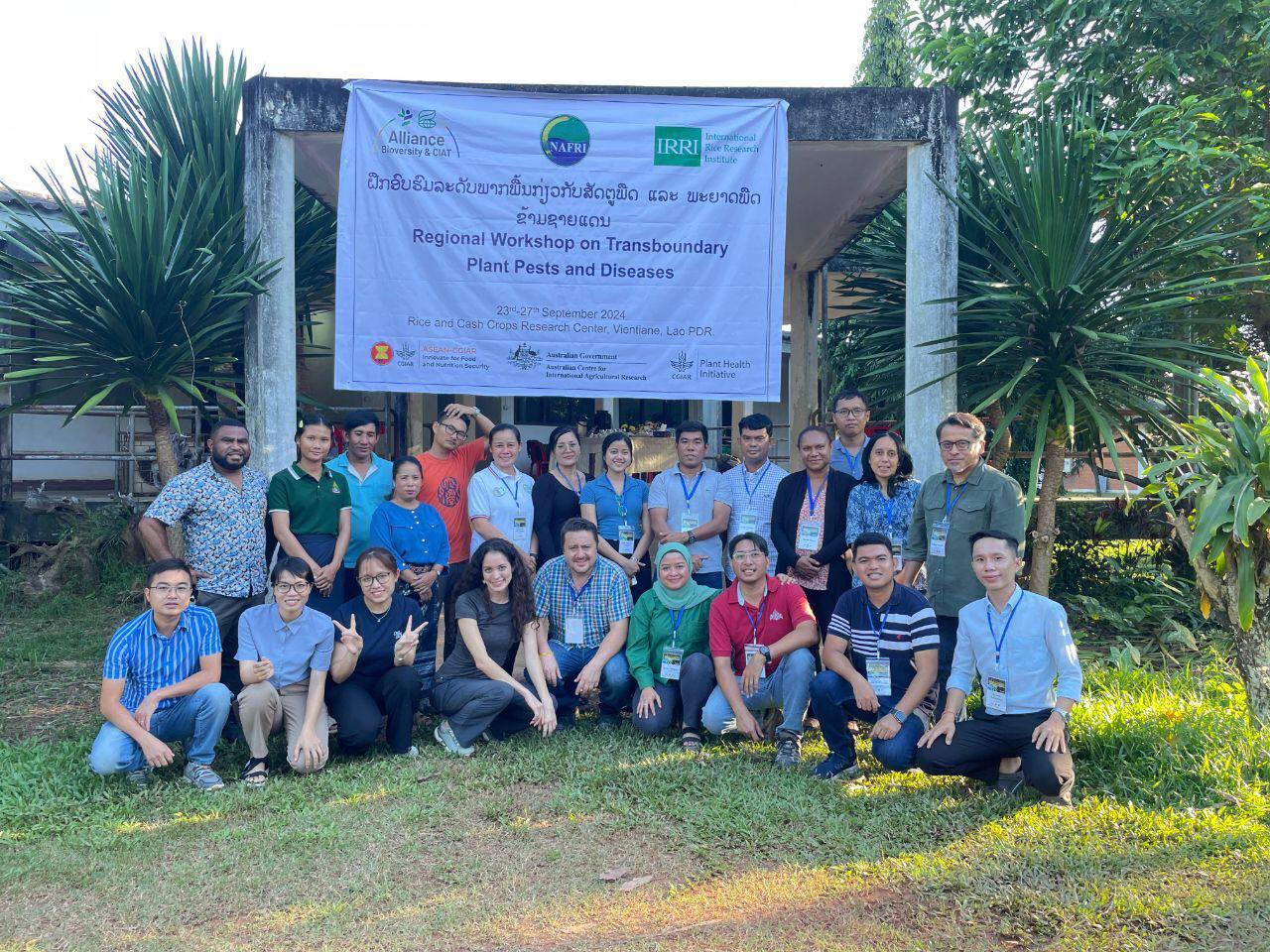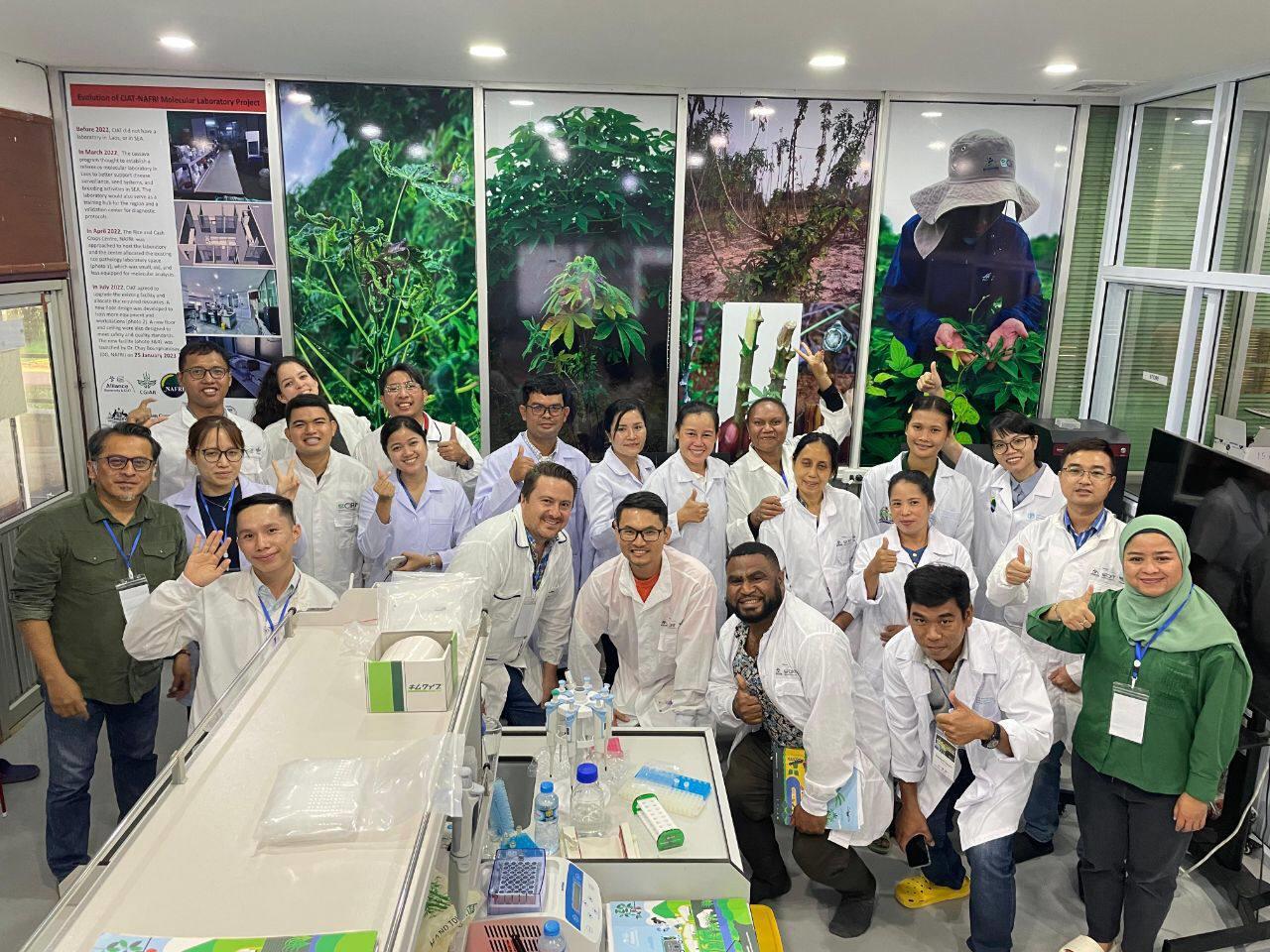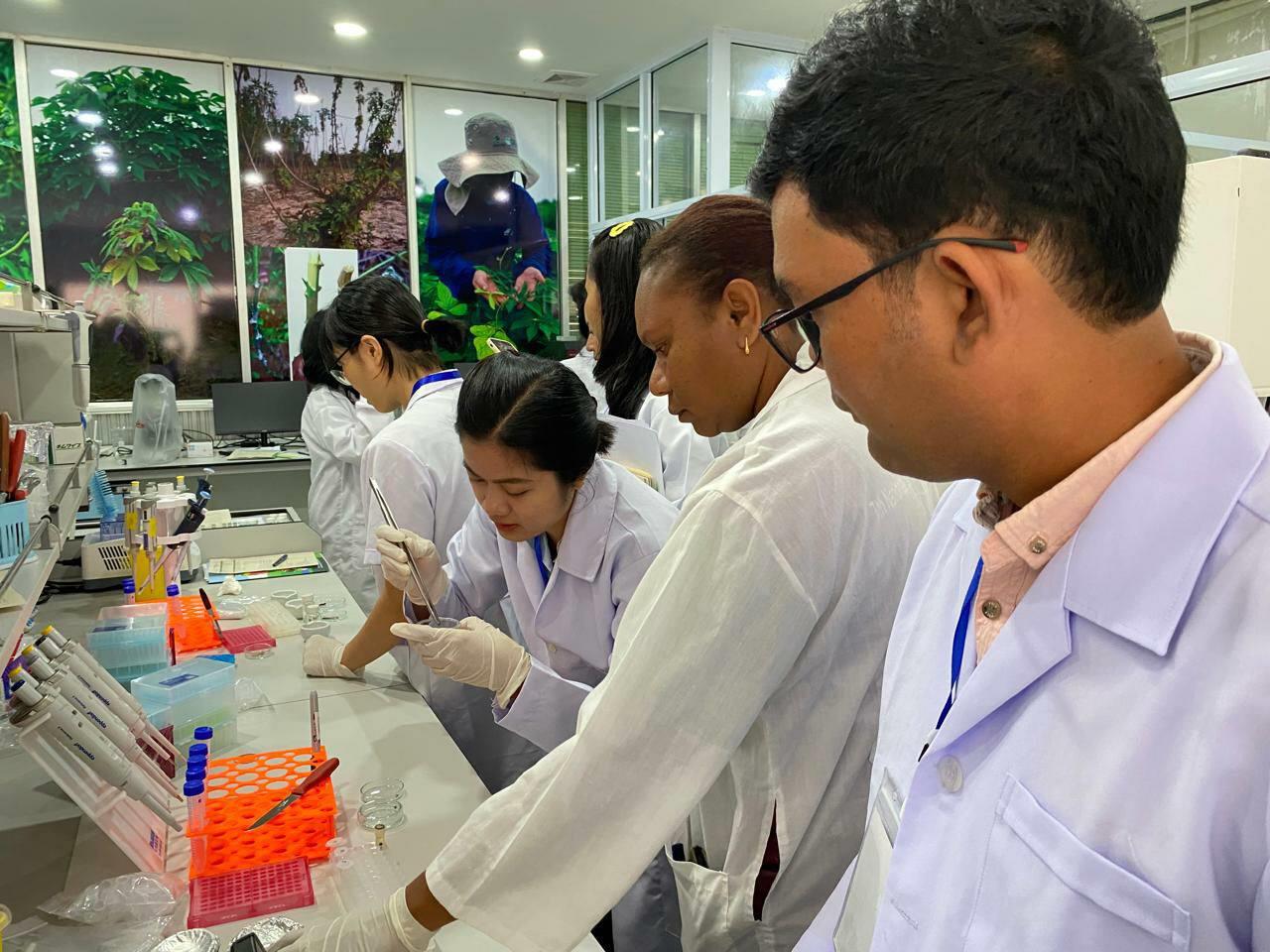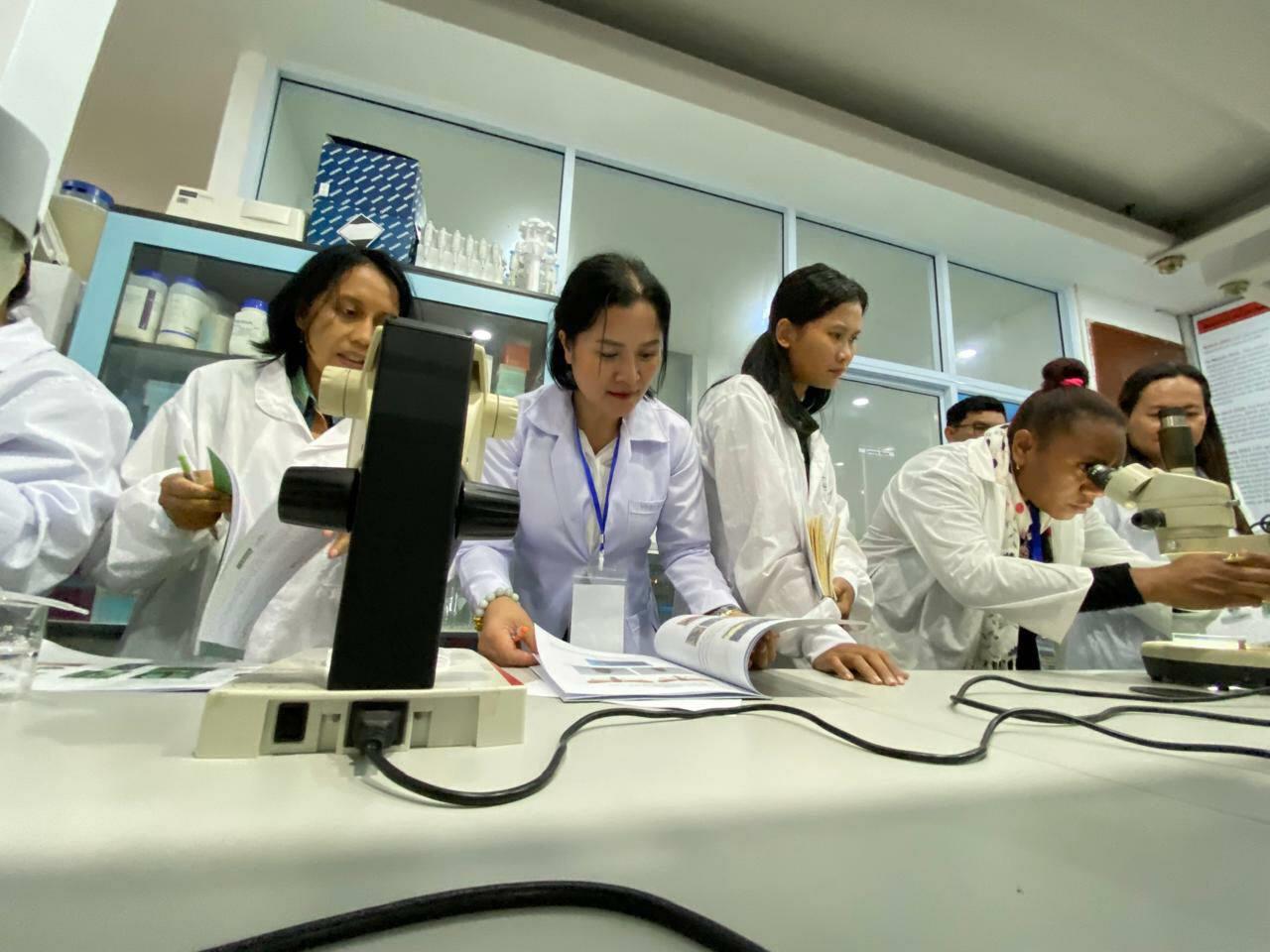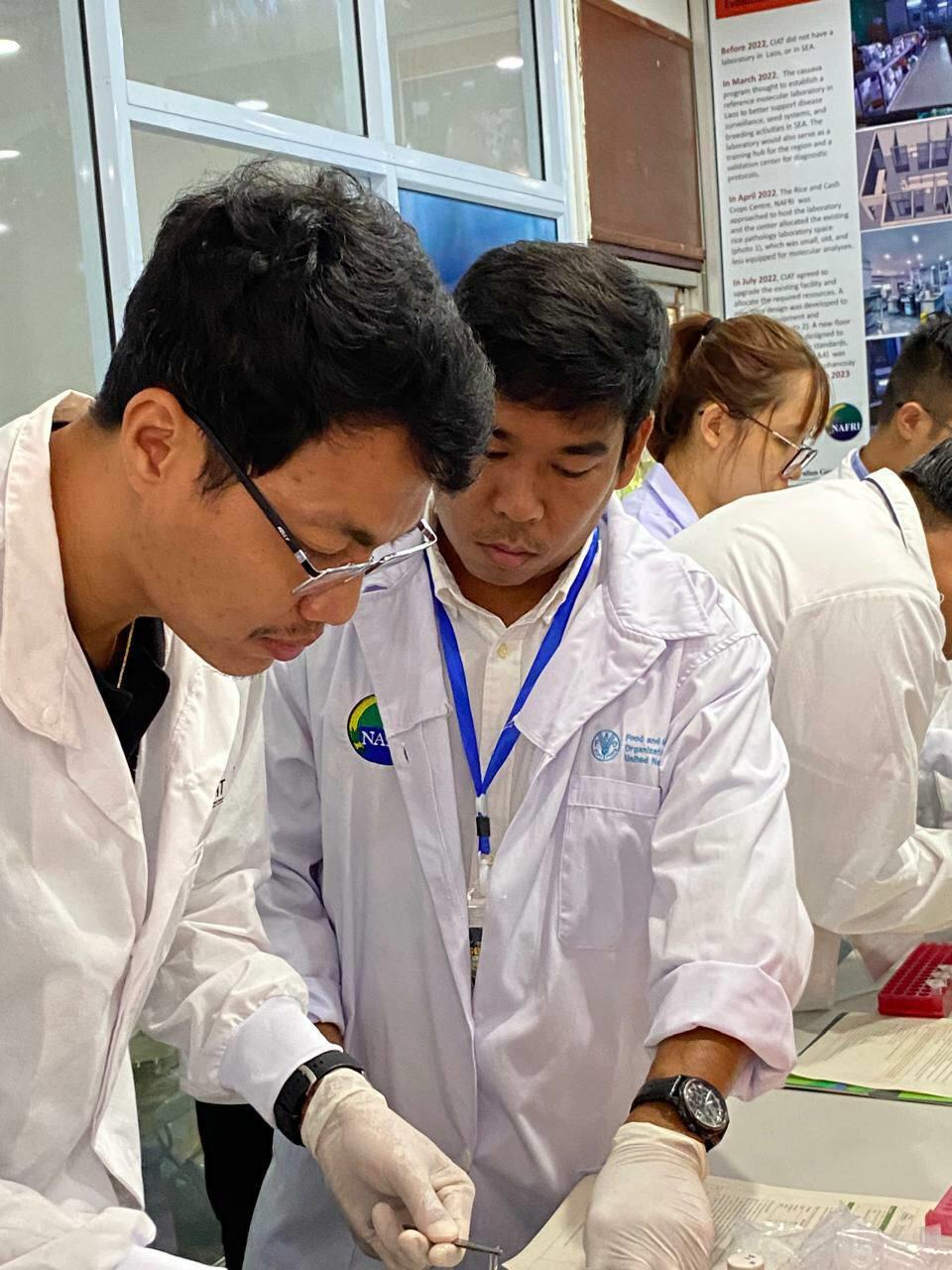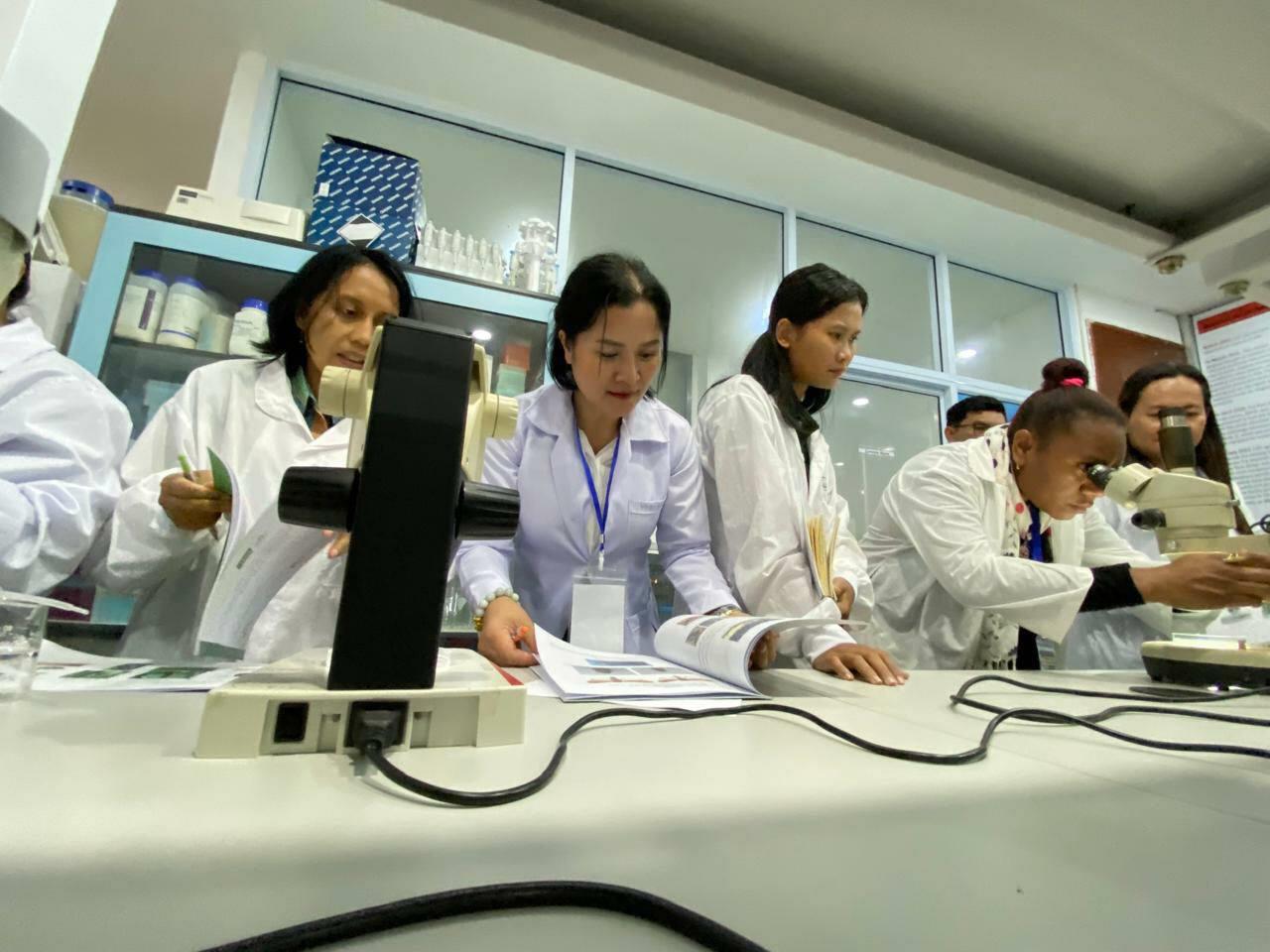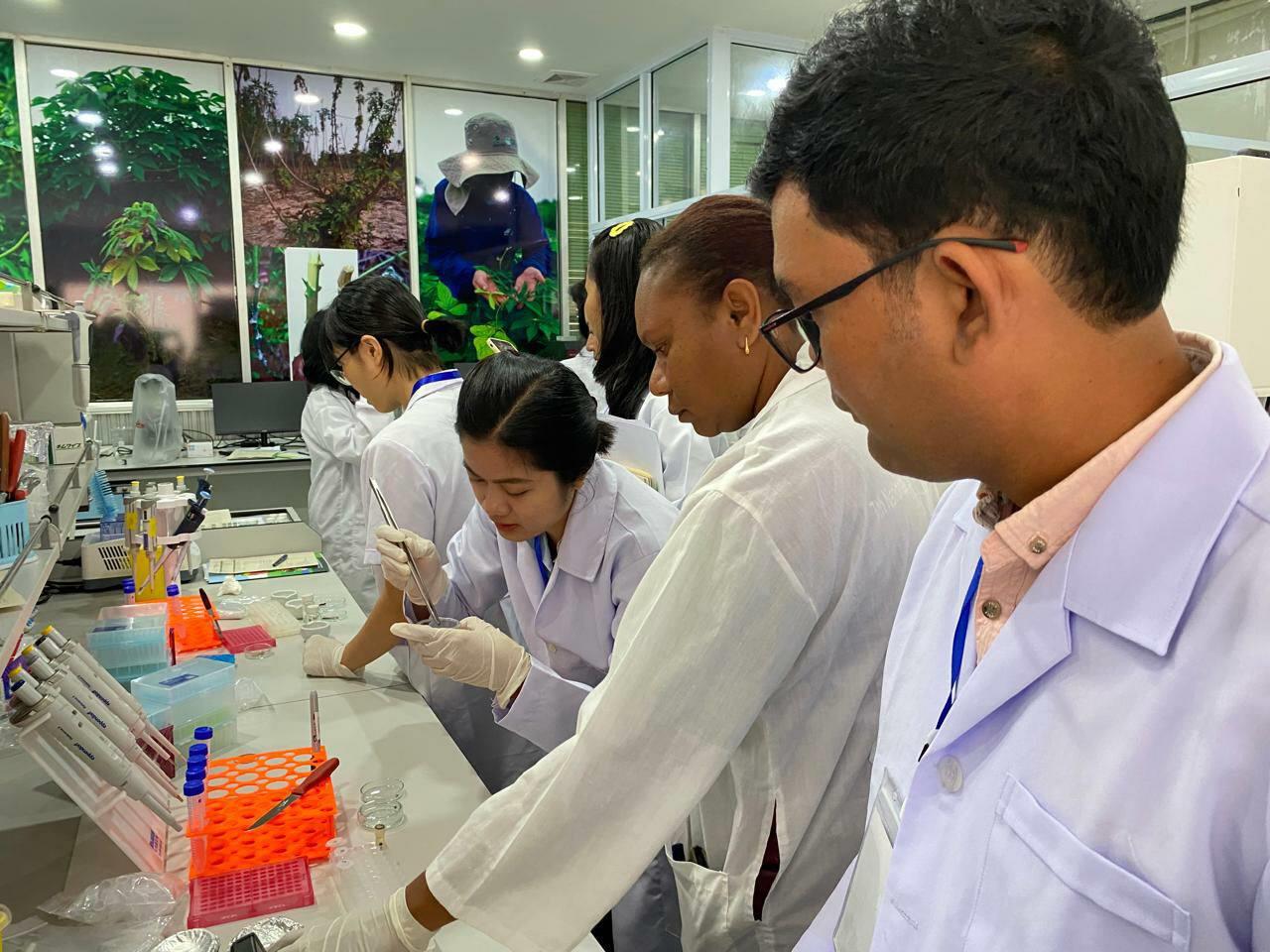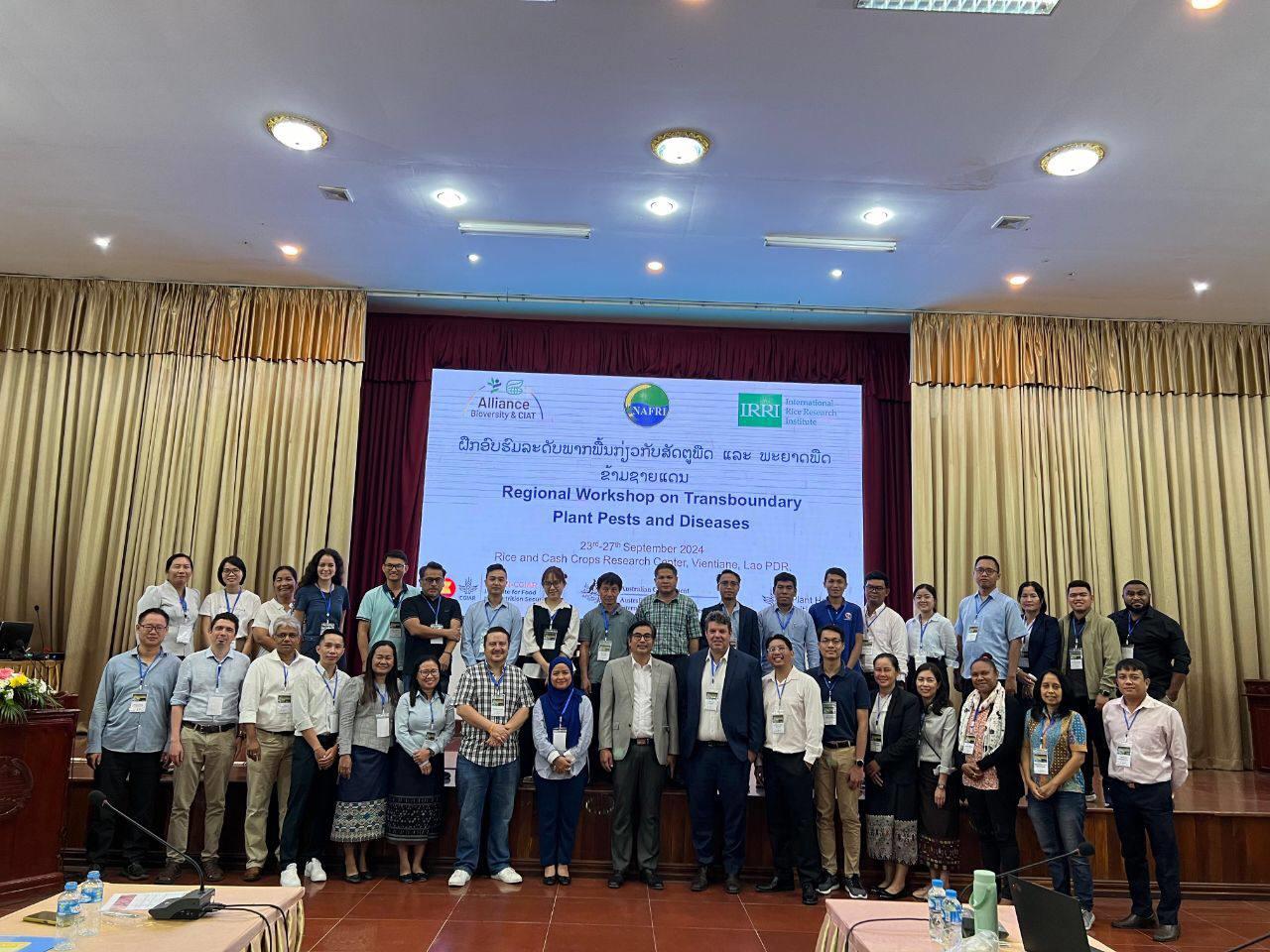Vientiane (FN), Sep. 28 – A regional workshop on Transboundary Pests and Diseases took place at the joint Molecular Pathology laboratory of the National Agricultural and Forestry Research Institute (NAFRI) and CIAT, located at the Rice and Cash Crop Research Center (RCCRC) in Vientiane, Laos, from September 23 to 27, 2024. The event was co-organized by the Alliance of Bioversity International & CIAT, and the International Rice Research Institute (IRRI). Throughout the week, stakeholders from national plant protection centers, research institutes, and universities in Cambodia, Laos, Vietnam, Indonesia, the Philippines, Thailand and Papua New Guinea participated actively. Notably, officials from the Plant Protection Office of Cambodia's General Directorate of Agriculture (GDA) and the Cambodian Agricultural Research and Development Institute (CARDI) were also engaged in the workshop.
Transboundary pests and diseases (TPD) present significant challenges in Southeast Asia, threatening agricultural productivity and food security across the region. These issues often transcend national borders, necessitating coordinated regional responses. In particular, insect pests and diseases can spread rapidly, impacting staple crops like rice and cassava, which are vital to economies. Moreover, the increasing movement of goods and the effects of climate change further exacerbate these risks, underscoring the need for enhanced monitoring, research collaboration, and effective management strategies to safeguard agriculture and biodiversity in the region.
The workshop opened with remarks from Dr. Phetmanyseng Xangsayane, Acting Director of NAFRI and Dr. Jonathan Newby, Cassava Program Leader of the Alliance of Bioversity International & CIAT. Both emphasized the importance of building capacity in the identification of key pests and diseases affecting cassava and rice in the region. Dr. Nurmi Pangesti, an IRRI scientist and country representative for Cambodia, presented on key transboundary pests in rice systems, focusing specifically on armyworms which are emerging as a threat to rice cultivation. Additionally, Dr. Wilmer Cuellar, Cassava Crop Protection Lead from CIAT, presented an overview on cassava witches' broom disease, currently a major threat for cassava cultivation in Southeast Asia. Participants were introduced to various technologies for identifying pests and diseases affecting rice and cassava crops facilitated by Juan Manuel Pardo, CIAT cassava pathologist in Southeast Asia, Alejandra Gil-Ordonez, CIAT bioinformatician and Nolan Manalo, IRRI Entomologist.
This workshop received support from the ASEAN-CGIAR Innovate for Food and Nutrition Security Regional Program (Intervention Package 5 on Transboundary Pests and Diseases), the Australian Centre for International Agricultural Research (ACIAR), and the CGIAR’s Plant Health Initiative (PHI).
=FRESH NEWS
